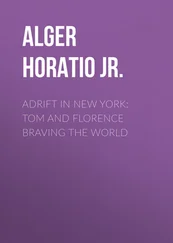‘How do you like my perfume?’ she asked.
‘Very much indeed,’ he replied, plucking up courage. ‘The scent of roses?’
‘Yes,’ she said. ‘You have a sensitive nose. But there’s something else here, too –’ she indicated her slender white neck – ‘which you’ll have to come very close to recognize. And if you guess what it is …’
She pulled his head towards hers. His nose and – he couldn’t avoid it – his mouth touched her blonde hair, then her neck. He felt like fainting, but that was out of the question. It would certainly not be gallant of him.
‘Y-yes?’ Again this melody. One of these days, he would compose a series of variations on it. An aria, thirty variations, then the aria again.
‘What do you smell?’ she asked softly.
Nothing , he wanted to say, but checked himself.
Once again, he put his mouth and nose against her neck. And then, all of a sudden, it came to him. ‘Skin,’ he whispered.
Was that gallant? No, maybe not. Probably it was far too blunt. But if he’d varied the theme, or found a sweet and catchy new melody for it – now that would have been gallant.
But, gallant or not, it was definitely the right answer.
‘I’m going to compose an opera,’ said Bach to Erdmann after he got back from Hamburg, ‘something gallant.’ And by that he didn’t mean anything immoral or salacious but ‘gallant’ in the sense of that learned, educated figure known as the galant homme , possessed of a certain je ne sais quoi . In other words, one in whom the inside matches the outside and is in accordance with nature.
Erdmann peered down at him. He couldn’t help it. He was still a head taller than Bach, although Bach had also grown in the meantime. Did he already have a libretto for his opera?
‘That’s the problem,’ said Bach. ‘That’s what’s missing.’
There was a pause in which both of them were lost in their own thoughts until, all of a sudden, as though controlled by an invisible hand, a jolt went through both of them.
‘What about –’ they asked simultaneously before they stopped and fell silent.
‘You first,’ said Erdmann.
‘No, you first,’ said Bach. ‘You’re the older one.’
‘Now then,’ began Erdmann, ‘what about me writing the libretto? I’ve never tried anything like that before, but by Jove I’ll get it right.’
That was exactly what he’d hoped for, said Bach excitedly. He was quite sure that Erdmann could master the task in an outstanding way.
‘What sort of subject matter does the master composer have in mind?’ Erdmann asked.
‘Something mythological,’ said Bach. ‘In German. They sing in German, not Italian at the opera at Gänsemarkt.’
‘And what else?’
‘A part for a female singer. A soprano.’
‘Soprano or not, that’s beyond my remit,’ said Erdmann. ‘I’m only the librettist. And what else?’
‘Something gallant. With a certain je ne sais quoi .’
‘ Va bene ,’ said Erdmann, probably because Italian was the native language of the opera. ‘I’ll give it some thought.’
Three days later he came to Bach, his face flush, and said he had an idea. Something mythological, exactly as Bach had wanted. Something that is a gallant subject matter right off.
This Erdmann , thought Bach, he’s amazing. First a philosopher, then a diplomat, now a librettist . Full of anticipation, he looked at his friend.
His suggestion, Erdmann continued, concerned a crafty hero returning from a great battle. On his way back home, he suffers all sorts of calamities.
‘Ulysses?’
‘Correct,’ said Erdmann. And the episode he was suggesting for an opera was that of Ulysses and Circe.
‘No,’ said Bach. ‘That’s too frivolous.’
‘Not at all,’ Erdmann objected. ‘After all, the story is about a hero coming home to his lawful wife.’
‘But Circe transforms the men into pigs,’ said Bach, his face distorted with disgust.
‘Not all of them,’ retorted Erdmann. ‘Would you be so kind as to let me explain the treatment? If I may be allowed?’
Bach made some more protesting gestures and remarks but he already felt that he liked the subject matter well enough. His beloved Sophie Agneta Petersen would sing the part of Circe. And he would put himself in the shoes of Ulysses while composing the opera. The man who, tied to his ship’s mast, had heard the singing of the Sirens!
‘Well,’ Erdmann began, ‘it all starts with Ulysses and his companions arriving on the island of Aeaea.’
‘Ah … yeah?’
‘Yes. – In other words, it begins with a seamen’s chorus.’
‘It begins with the overture,’ said Bach, and he began to improvise a melody that was just morphing into a second one when Erdmann cut him short with an emphatic hand gesture
‘Forgive me,’ said Bach.
‘All right,’ said Erdmann, ‘first the overture, then the seamen’s chorus. The ship is pulled on shore, and then Ulysses sings, tenor or bass …’
‘Tenor,’ said Bach.
‘I’d appreciate not being interrupted all the time,’ Erdmann said. ‘So: Ulysses laments that he still hasn’t reached his home in Ithaca, where his wife Penelope and son Telemachus are waiting for him. While the chorus sings again, Ulysses climbs up a mountain. In the distance, he sees smoke rising. Shortly thereafter, he picks some of his crew to explore the island.’
‘If I remember rightly,’ said Bach, ‘they drew lots.’
‘Such subtleties will get worked out later,’ said Erdmann. ‘Anyway, the companions hit the road, discover a stone house and hear an enchanting voice.’
‘An aria,’ said Bach. ‘Circe! I like that.’
‘While the men listened enraptured,’ Erdmann went on, ‘mountain wolves and lions come up to them, completely amicable and peace-loving. The island seems to be a true paradise. And indeed, Paradise on earth is this, here thou’lt dwell in perfect bliss , sings Circe, serving the men delicious food into which she has mixed her magic herbs. As soon as the men have eaten the food, the beautiful nymph touches them with her staff and transforms them into pigs.’
‘I knew it,’ said Bach, disgusted. ‘Couldn’t they at least be turned into wolves or mountain lions?’
‘No,’ Erdmann said categorically, ‘we stick to Homer. By the way, one of the men, Eurylochos, is not transformed because he’s smart and doesn’t enter the house together with the others. He sneaks back to Ulysses and brings him the terrible news. Curtain: end of Act One.’
‘Fantastic!’ Bach exclaimed. ‘Go on! What happens next?
‘Well …’ Erdmann said evasively, who had yet to think out the second and third acts in greater detail. One thing was certain, though. With the help of Hermes, the messenger of the gods, Ulysses would succeed in freeing his friends, himself enchanting Circe the enchantress …
Working on the opera fired up Bach’s creativity enormously. Motifs and melodies kept rushing through his head. He could hardly concentrate in the classroom. He constantly scribbled drafts on scraps of paper he’d collected and kept. At night he dreamed of his work being celebrated by a rapt audience.
There was no doubt about it: his future lay as a composer of opera! How they would envy him his freedom and fame – all those Bachs scraping together a living in Saxony and Thuringia as lowly town musicians or organists in the poorly paid service of the Church!
He longed to go back to Hamburg in order to clasp his future Circe in his arms. He would have loved to talk to her every day, but how? He didn’t even have her picture, in miniature or silhouette. He had nothing but his memories.
Читать дальше












